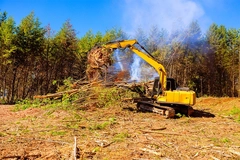
- Industry news
Industry news
- Category news
Category news
- Reports
- Key trends
- Multimedia
- Journal
- Events
- Suppliers
- Home
- Industry news
Industry news
- Category news
Category news
- Reports
- Key trends
- Multimedia
- Events
- Suppliers
Nestlé boosts coffee sustainability with regenerative agriculture focus

Nescafé has announced it sourced 32% of its coffee from farmers implementing regenerative agriculture practices in 2024, surpassing its 2025 goal of 20%. The Nestlé coffee brand’s focus on regenerative agriculture aims to enhance climate resilience, improve farmer income, and reduce coffee’s carbon footprint.
The efforts include supporting coffee farmers’ transition to optimized fertilization, soil cover, mulching, and composting to enhance productivity and lower costs.
Adopting these sustainable practices also helps reduce coffee’s greenhouse gas emissions (GHG). In 2024, the company decreased 20% to 40% of GHG emissions per kg of green coffee through its Nescafé Plan.
“Regenerative agriculture is at the heart of the Nescafé Plan and our efforts to build resilience in our coffee supply chain,” says Axel Touzet, head of Nestlé’s Coffee Brands Strategic Business Unit.
Pointing to data in the Nescafé Plan 2030 Progress Report, he says that increased adoption rates show that farmers are becoming “increasingly aware of the benefits of these practices.”
“This encourages us to continue the work we do with our partners, suppliers, and farmers in the regions where we source our coffee,” he adds.
Boosting coffee sustainability and income
According to the report, Nescafé established the Agrinest digital learning platform in 2023 to promote peer-to-peer learning among farmers on the topic of regenerative agriculture to help them improve productivity and environmental sustainability.
Additionally, in 2024, it supported over 200,000 farmers across various countries with training and financial incentives to adopt regenerative practices. These include Côte d’Ivoire, Indonesia, Mexico, and Honduras.
 Estimates suggest that investing US$500–600 million yearly in regenerative coffee farming could yield over US$2 billion in annual farmer income.In this year’s Progress Report, Nescafé also highlighted its collaboration with Deutsche Gesellschaft für Internationale Zusammenarbeit and TechnoServe through the Coffee++ Project to enhance farmers’ business skills and improve yields.
Estimates suggest that investing US$500–600 million yearly in regenerative coffee farming could yield over US$2 billion in annual farmer income.In this year’s Progress Report, Nescafé also highlighted its collaboration with Deutsche Gesellschaft für Internationale Zusammenarbeit and TechnoServe through the Coffee++ Project to enhance farmers’ business skills and improve yields.
Data from a study conducted by TechnoServe indicates that regenerative agriculture can significantly increase farmers’ income from coffee while decreasing GHG emissions.
Estimates suggest that an annual investment of US$500-600 million into regenerative agriculture in coffee could trigger a per annum return of over US$2 billion in additional farmer income, up to US$2.6 billion of additional coffee exports, and nearly 3.5 million metric tons of abated CO2 eq.
“As a result of this effort, we have the data to show that regenerative agriculture is not only good for nature, but essential for farmer livelihoods and the future of the coffee industry,” says Paul Stewart, Global Coffee Director at TechnoServe.
“We hope it will inspire greater investment from governments and the private sector to scale up regenerative coffee production around the world.”















